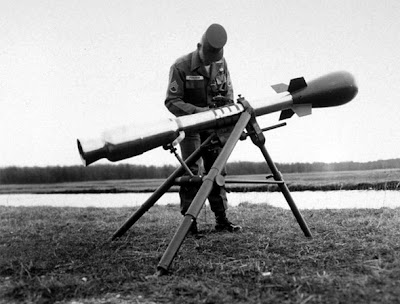
Another official said that Barak wanted to “set things straight” after Israel’s military chief, Lieutenant-General Benny Gantz, said in a newspaper interview that Iran - which insists its nuclear ambitions are peaceful - was preparing components of a bomb but was unlikely to “go the extra mile” of assembling it, given the likely global backlash.
“I think the Iranian leadership is composed of very rational people,” Gantz told the liberal Haaretz daily.
Barak’s speech did not mention Gantz specifically. Unlike in previous years, the event was closed to the media, though that decision was taken before the general’s interview was published.
In lobbying world powers to stiffen sanctions designed to curb Iran’s uranium enrichment, Israel has long appealed to their worries about Middle East destabilisation and oil shock. This has entailed warning that an Iranian bomb would embolden militants, spark arms races, and rattle energy markets. It has also entailed hinting that Israel - assumed to have the region’s only atomic arsenal - could go to war to thwart what it regards as a mortal threat should it deem that foreign diplomacy with Teheran is at a dead end.
Six world powers revived negotiations with Iran in Istanbul last month and are due to resume them in Baghdad on May 23.
Gantz's assessment of Iran's intentions is consistent with the view of British and American officials. They also believe that Iran wants the technical ability to build a nuclear weapon - in breach of its obligations under the non-proliferation treaty - but has not yet decided whether to exercise the option.
However, Gantz added that a nuclear-capable Iran would pose a serious threat, not least because the intentions of its leadership could change. "I agree that such a capability, in the hands of Islamic fundamentalists who at particular moments could make different calculations, is dangerous," he said.
Iran began enriching uranium on a large scale in 2007, embarking on a sensitive process that could be used to make the essential material for a nuclear weapon. But Gantz played down suggestions that 2012 would be the vital year when Iran either became nuclear-capable or was thwarted by international pressure, including possible military attack.
"Clearly, the more the Iranians progress the worse the situation is. This is a critical year - but not necessarily 'go, no-go'. The problem doesn't necessarily stop on Dec. 31, 2012," he said.
The United States and European nations have imposed tough economic sanctions on Iran in an effort to pressure it into accepting international demands to restrict its nuclear program.
"If the sanctions are going to work, they better work soon," Netanyahu said on CNN.
Iran insists that its nuclear program is for energy and medical purposes. U.N. and Western leaders suspect it of having military aims, including a possible nuclear weapon.
Last month, the International Atomic Energy Agency, the U.N. nuclear watchdog, noted what it called a sharp and troubling increase in Iran's uranium enrichment capabilities.
The talks with Tehran this month involved the five permanent members of the United Nations Security Council -- the United States, France, Russia, China, and Britain -- as well as Germany.
That group has spearheaded diplomatic efforts to persuade Iran to rein in its nuclear program, but Israel has criticized the initiative as giving too much ground to Tehran and demanded that it stop all enrichment activities.
Netanyahu said that if the combination of sanctions, diplomacy and "other pressures" succeeds in stopping Iran's nuclear program, "I will be the happiest person in the world."
Different forms of nuclear weapons delivery (see above) allow for different types of nuclear strategies. The goals of any strategy are generally to make it difficult for an enemy to launch a pre-emptive strike against the weapon system and difficult to defend against the delivery of the weapon during a potential conflict. Sometimes this has meant keeping the weapon locations hidden, such as deploying them onsubmarines or rail cars whose locations are very hard for an enemy to track and other times this means protecting them by burying them in hardened bunkers.
No comments:
Post a Comment